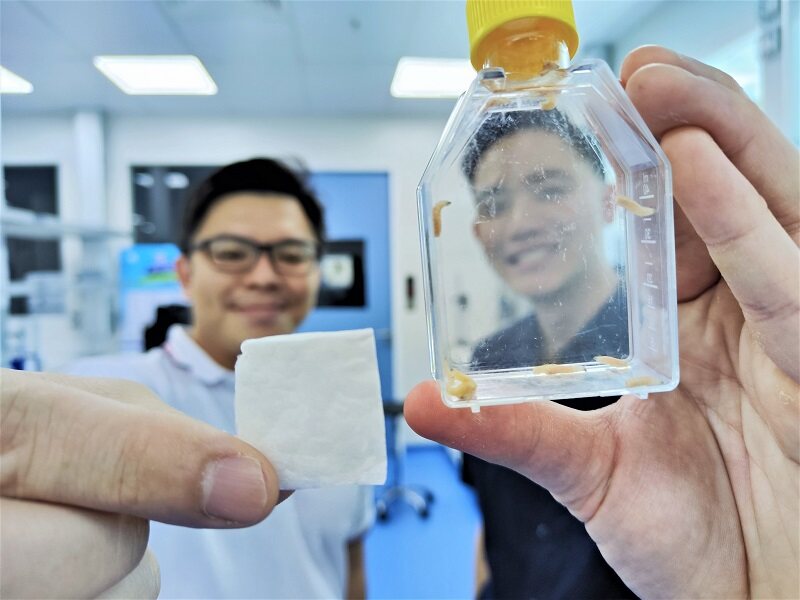

A new clinical-grade collagen made from discarded bullfrog skin is leapfrogging from the lab bench to clinics soon.
The collagen is developed by materials scientists from Nanyang Technological University, Singapore (NTU Singapore) in collaboration with Singapore medical technology firm Cuprina Wound Care Solutions (Cuprina), which specialises in developing products that treat chronic wounds, such as those suffered by diabetes patients.
The patented technology is now exclusively licensed to Cuprina for scale-up and commercial production.
Chronic wounds affect 1 in 20 patients in Singapore. Coupled with diabetes affecting 1 in 10 patients and a rapidly aging population, demand for chronic wound care is expected to increase.
Using marine skin waste to create valuable collagen is also a sustainable way to up-cycle and reduce waste for Singapore, as the country is driving towards its Zero Waste Masterplan and encouraging a circular bioeconomy.
This new collagen patch will complement Cuprina’s flagship product MEDIFLY, which is clinically proven to eliminate infections and reduce amputation rates due to chronic wounds, especially in cases associated with diabetic foot ulcers.
Earlier this year, Cuprina’s joint proposal with NTU to develop and fast-track the commercialisation of this unique collagen product was announced as one of the winning entries of the Sustainability Open Innovation Challenge organised by Enterprise Singapore.
See earlier media coverage on the NTU study using bullfrog skin and fish scales for bone repair.






































